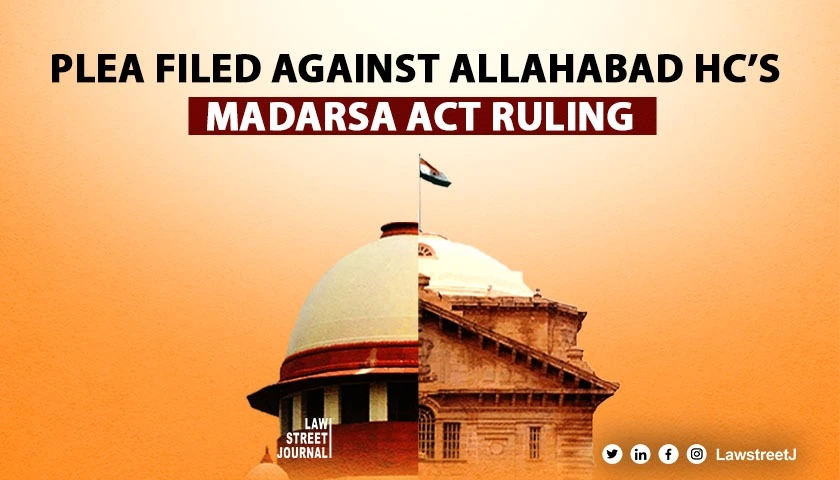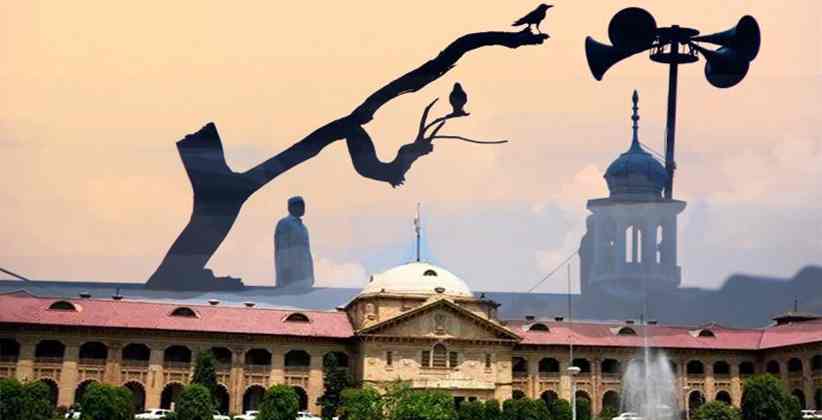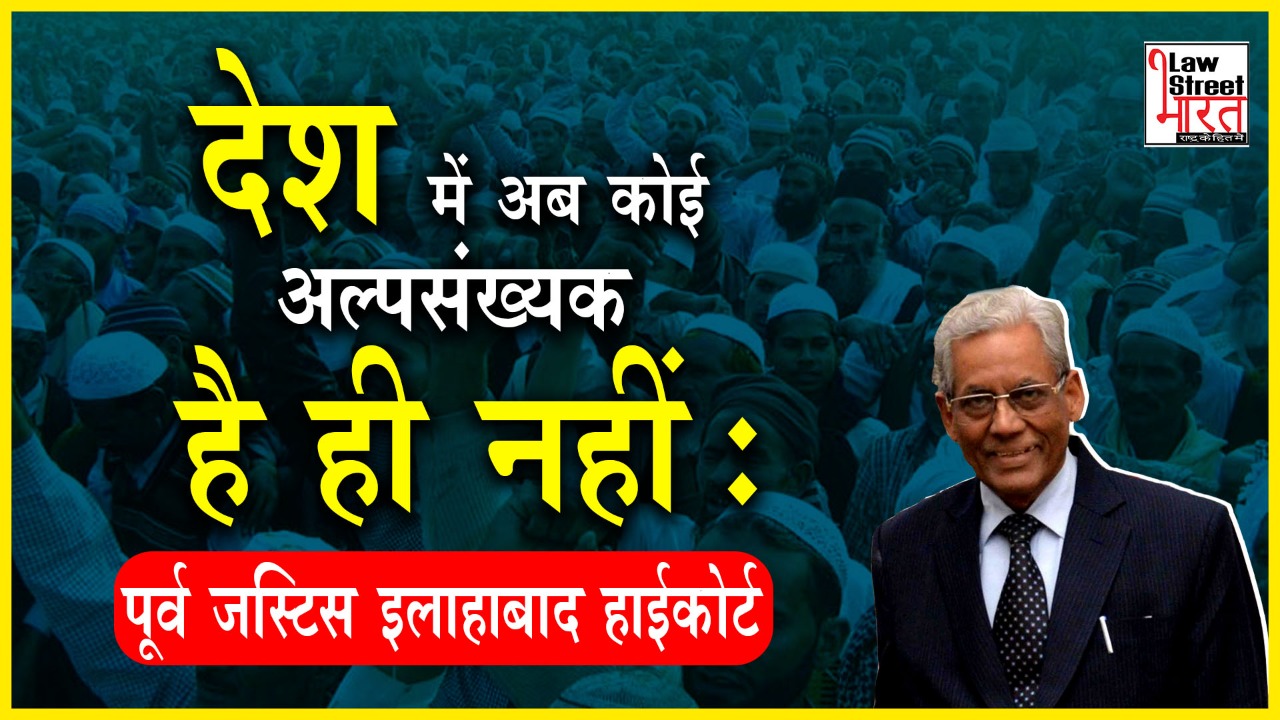NEW DELHI: A plea has been filed in the Supreme Court, challenging validity of the Allahabad High Court's March 22 order, which declared the UP Madarsa Act, 2004 as unconstitutional and violative of the principle of secularism, and fundamental rights guaranteed under Articles 14, 21 and 21-A of the Constitution.
The petition filed by Anjum Kadari, a resident of Maharajganj in Uttar Pradesh, contented that the High Court committed grave error by way of passing a judicial order to encroach upon the power of legislature and kept in abeyance law laid down by the Supreme Court in a catena of judgements.
It cited the Supreme Court's order in 'Anoop Baranwal vs Union of India', (2023), where in it was also observed that the court is neither invited, nor if invited, would issue a mandamus to the legislature to make a law in a particular manner.
"However, the constitutional court within the framework of the Constitution exercises the power of judicial review and can invalidate a law when it is violative of the fundamental rights, on application of the principle of proportionality etc, it said.
The plea also said the Supreme Court has also held in the matter of 'P A Inamdar & Ors vs State Of Maharashtra & Ors' (2005) that Article 29(2) and 30(1), read together, clearly contemplate a minority institution with a 'sprinkling of outsiders' admitted in it.
"By admitting a member of non-minority into the minority institution, it does not shed its character and cease to be a minority institution. The judges went on to observe that such 'sprinkling' would enable the distinct language, script and culture of a minority being propagated amongst non-members of a particular minority community and that would indeed better serve the object of conserving the language, religion and culture of that minority, the plea filed by advocate Sanjeev Malhotra said.
The petition settled by advocate Pradeep Kumar Yadav claimed High Court was failed to appreciate the true facts of the case that Article 14, 21-A and Article 29 (2) read with Article 30 (1), is equal not in consonance, committing grave injustice against society as whole.
The HC's division bench comprising Justices Vivek Chaudary and Subhash Vidyarthi rendered its judgment on a petition filed by Anushuman Singh Rathore who challenged the constitutionality of the UP Madarsa State Board Act 2004 and provisions of the Right of Children of Free and Compulsory Education Act 2012.
The HC had said that it is not mandatory for a citizen of this country to be secular by nature and a citizen can have faith in his own religion or in some/every religion or may not have faith in any religion.
However, the State cannot do so. The State has to remain secular. It must respect and treat all religions equally. The State cannot, in any manner whatsoever, discriminate between religions while performing its duties. Since providing education is one of the primary duties of the State, it is bound to remain secular while exercising its powers in the said field. It cannot provide for education of a particular religion, its instructions, prescriptions and philosophies or create separate education systems for separate religions,
the HC had said.
It had also said any policy of the State which is divisive of society on religious lines is violative of the constitutional principles.
The HC also said it was surprised to find out that there is no regular Science subject from Classes 9th to 12th and Science was also an optional subject.








!["No Loudspeakers For Azan, No Fundamental Right To Create Noise," Says Allahabad HC To Two Mosques [Read Judgment]](/secure/uploads/2020/01/lj_4995_Allahabad_HC_AZAN.jpg)








